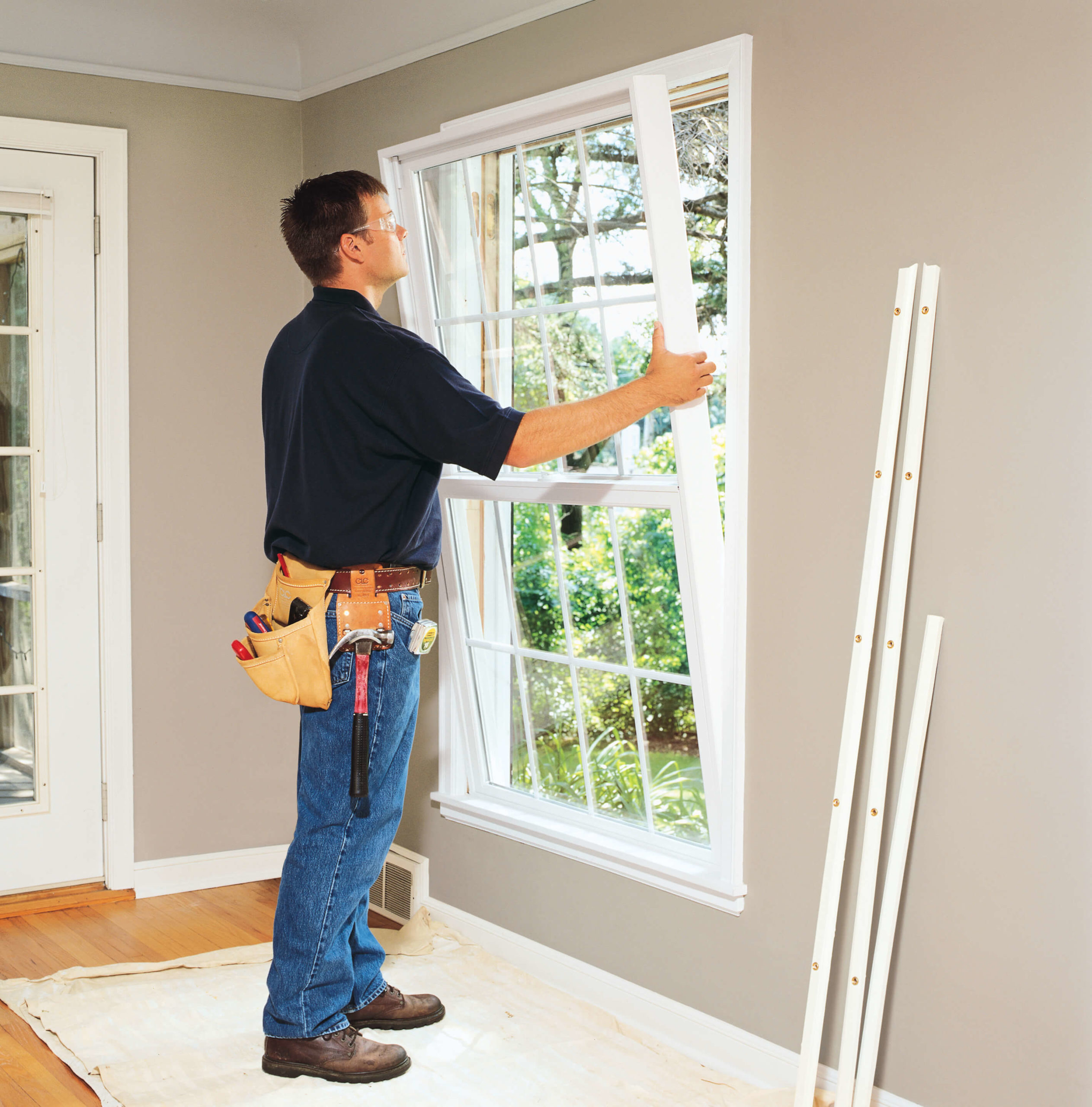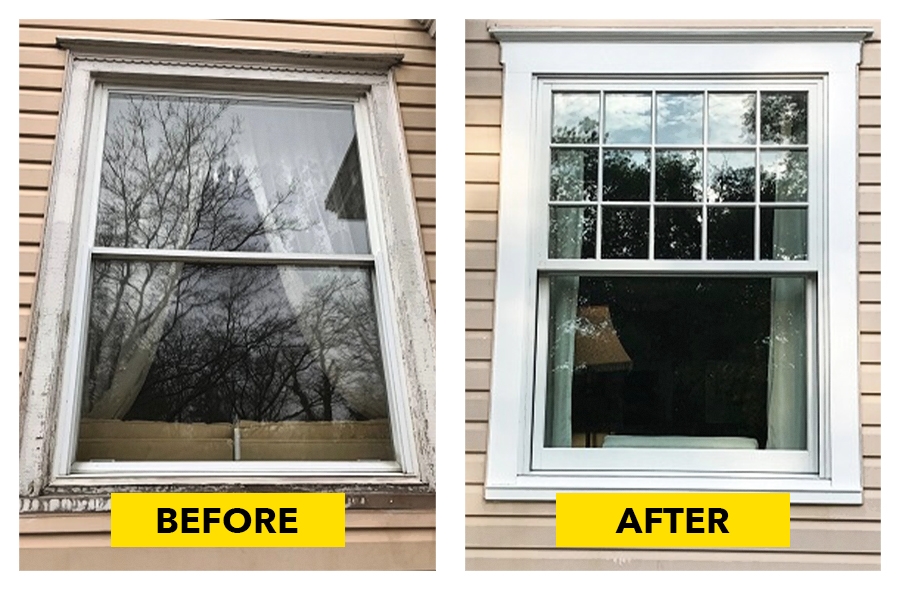Upgrade Your Home With Energy-Efficient Window Substitutes
In the realm of home renovation, the decision to upgrade to energy-efficient home window replacements can dramatically impact both the capability and aesthetic appeals of a house (Woodlands window replacement). As homeowners seek means to enhance the effectiveness and sustainability of their living spaces, the option of home windows plays a critical function in attaining these goals. Beyond the surface area level of simple aesthetics, energy-efficient windows use a multitude of benefits that go past mere aesthetic appeal. With a careful choice procedure that considers different variables, from glass types to installment strategies, embarking on this home upgrade trip can prove to be a transformative endeavor.
Advantages of Energy-Efficient Windows

The setup of energy-efficient windows gives significant cost savings on energy costs while improving ecological sustainability. In addition, energy-efficient windows can assist control moisture levels within the home, reducing the danger of mold and mildew and mildew development.
Beyond the monetary benefits, energy-efficient windows contribute to environmental sustainability by lowering carbon emissions associated with energy production. Overall, investing in energy-efficient home windows not just boosts the convenience and performance of a home yet also aligns with environmentally conscious methods.
Sorts Of Energy-Efficient Glass
Numerous innovative kinds of energy-efficient glass offer distinct homes that cater to different requirements and preferences in improving the sustainability and effectiveness of buildings. Low-emissivity (Low-E) glass is a prominent choice made to minimize the quantity of ultraviolet and infrared light that can go through the glass, thereby reducing heat transfer. This type of glass helps keep a regular interior temperature, decreasing the requirement for heating or cooling systems, and inevitably decreasing power prices. One more ingenious option is spectrally selective glass, which enables visible light to go through while blocking certain kinds of infrared radiation. This aids in preserving a comfortable interior setting while lessening warm gain. Triple-pane glass, consisting of 3 layers of glass with insulating gas in between them, gives boosted thermal insulation, making it very energy-efficient. Furthermore, self-cleaning glass with an unique layer that breaks down and loosens dirt when revealed to sunlight can lower maintenance requirements and keep windows looking tidy. Each kind of energy-efficient glass uses distinct benefits, allowing house owners to choose the most ideal option based upon their specific needs and goals.
Factors to Think About When Picking
When contemplating energy-efficient window replacements, it is imperative to very carefully assess particular aspects that straighten with your sustainability purposes and desired energy cost savings. One critical variable to consider is the window's energy performance scores, such as the U-factor and Solar Warm Gain Coefficient (SHGC) The U-factor procedures just how well the home window insulates, with lower numbers suggesting far better insulation, while the SHGC shows the home window's capacity to block heat from sunlight. Furthermore, the window framework product plays a significant duty in power efficiency. Products like fiberglass, vinyl, or wood with thermal breaks are excellent options for lowering heat transfer. An additional crucial factor to consider is the home window design and positioning worrying sunlight direct exposure. Selecting the right window style and purposefully putting them can make the most of natural light while decreasing warmth gain or loss. Finally, installation top quality is vital to making sure the windows perform as planned. Appropriate installation aids stop air leakage, ensuring optimum energy performance. By very carefully assessing these factors, you can pick energy-efficient windows that boost convenience, minimize energy prices, and benefit the environment.
Installation and Upkeep Tips

Regular upkeep is vital to maintaining the performance of your energy-efficient home windows. Check the windows periodically for any indicators of wear, damages, or sealer wear and tear. Clean the frames, tracks, and glass on a regular basis utilizing light soap and water to get rid of dust and gunk that can affect performance. Inspect the weather-stripping and seals official statement for any kind of tears or voids and replace them if needed to keep the windows' energy efficiency.
Furthermore, lubricate relocating parts such as hinges and locks to make sure smooth operation. By following these installment and maintenance ideas, you can enhance the power effectiveness of your home and prolong the life-span of your energy-efficient windows.
Cost-Benefit Evaluation of Upgrading

Energy-efficient home windows are developed to minimize warm transfer, lowering the demand for home heating and cooling down systems to burn the midnight oil. This can cause considerable financial savings on energy costs, especially in areas with extreme temperature levels. Additionally, energy-efficient home windows can boost the overall value of your home, making it more eye-catching to potential buyers if you choose to market in the future.
When determining the cost-benefit evaluation, consider the potential cost savings on energy costs, any type of readily available incentives or discounts, and the life-span of the windows. While the first price may be greater, the long-term savings and advantages of energy-efficient home windows make them a smart financial investment for homeowners looking to boost their home's power efficiency and worth.

Verdict
In verdict, updating to energy-efficient home window substitutes offers many advantages such as decreased energy consumption, increased convenience, and price financial savings. By picking the proper kind of energy-efficient glass and taking into consideration aspects like structure material and setup, home owners can make the most of the effectiveness of their windows.
When pondering energy-efficient home window mechanism replacement window substitutes, it is crucial to very carefully examine particular elements that line up with your sustainability goals and wanted power cost savings. The U-factor measures how well the window shields, with reduced numbers showing far better insulation, while the SHGC suggests the home window's capability to obstruct warm from sunlight. By meticulously examining these elements, you can choose energy-efficient home windows that improve convenience, lower energy costs, and benefit the atmosphere.
While energy-efficient windows may have a greater in advance price contrasted to typical home windows, the long-term advantages often surpass the first financial investment.In conclusion, updating to double glazing existing windows energy-efficient window substitutes provides numerous advantages such as lowered energy consumption, boosted convenience, and expense savings.